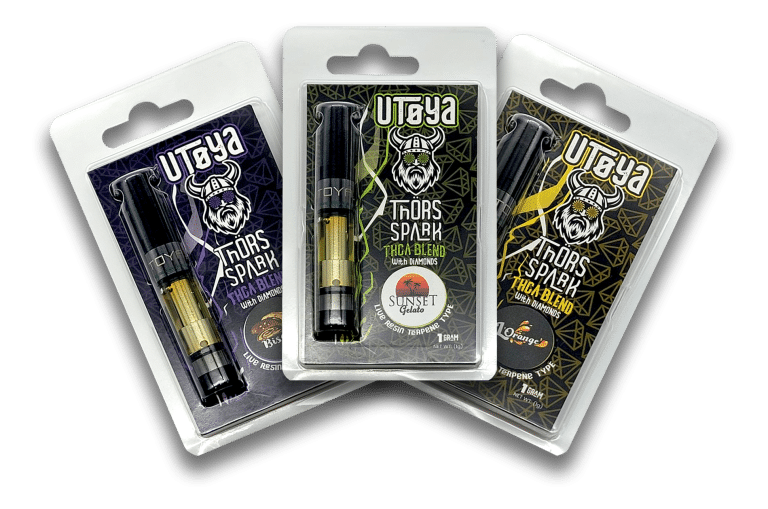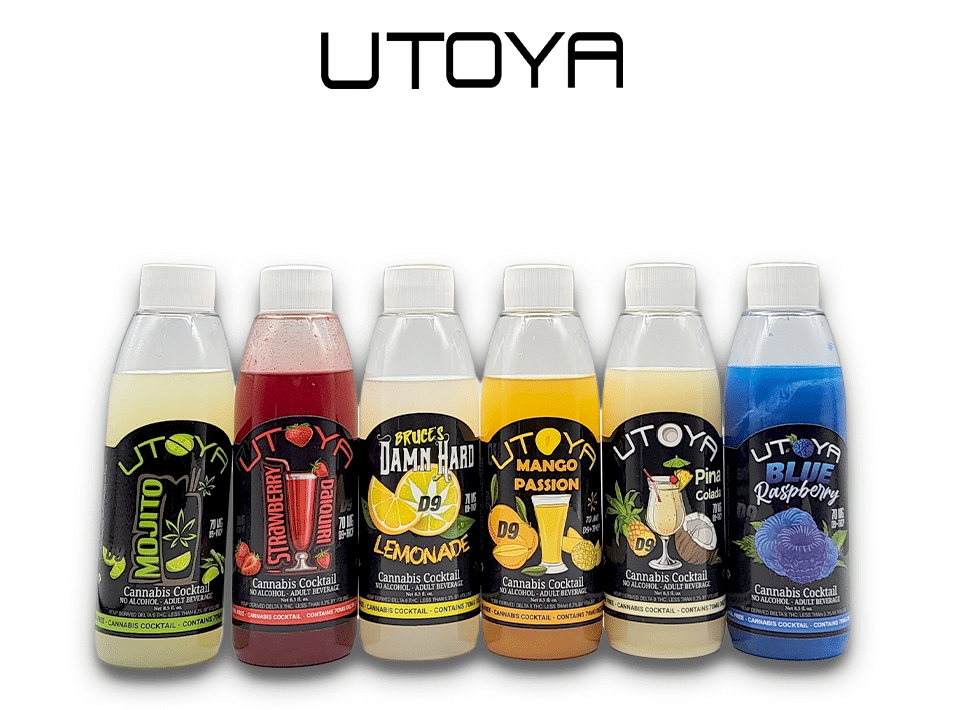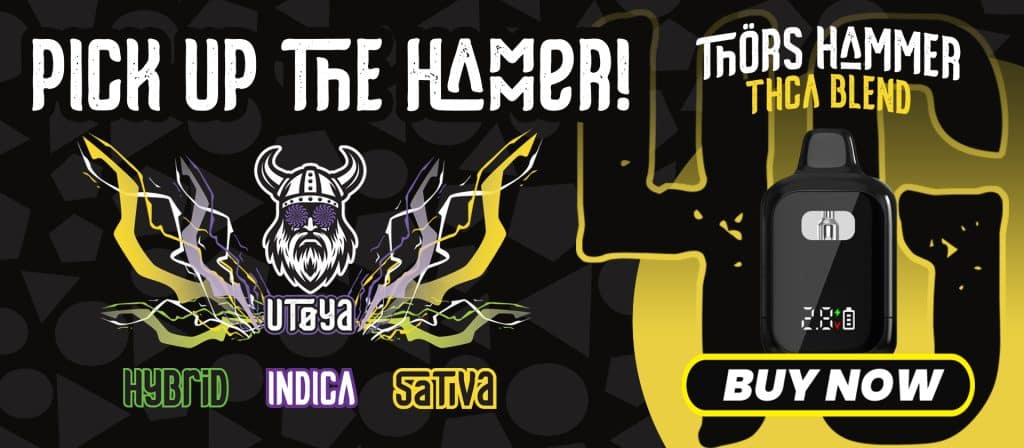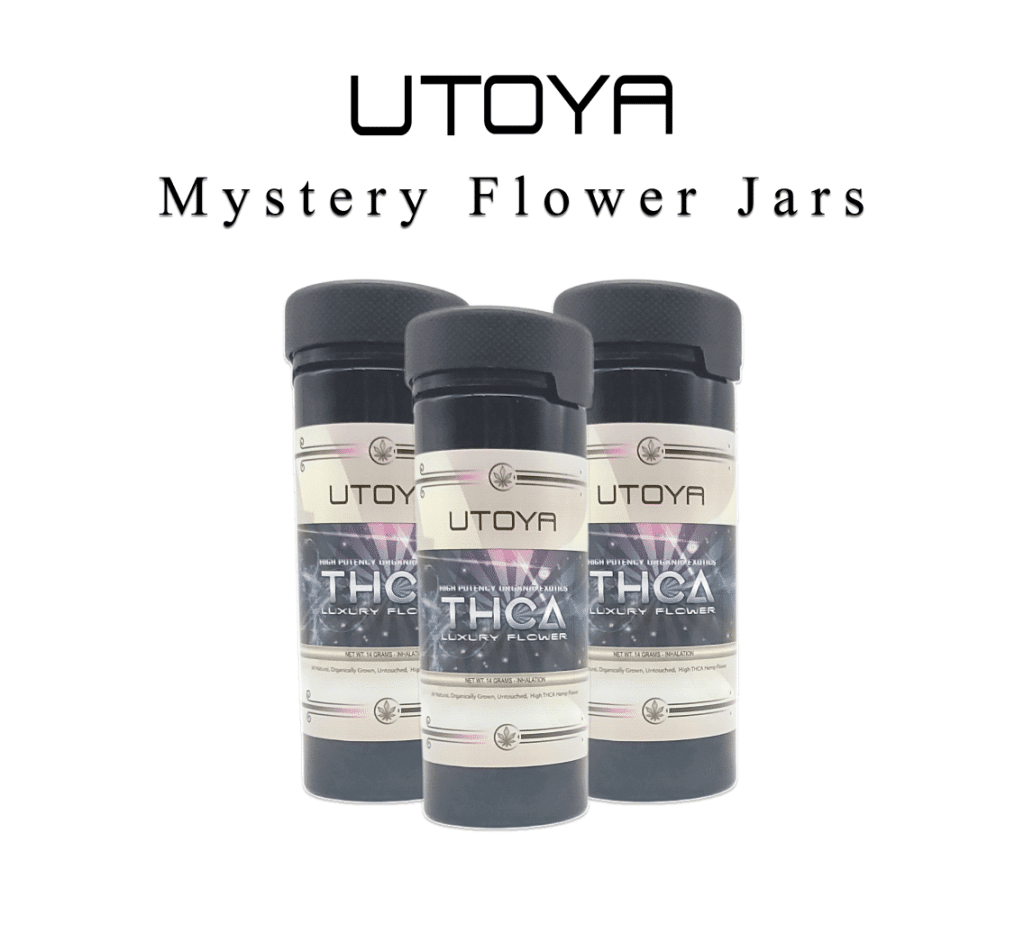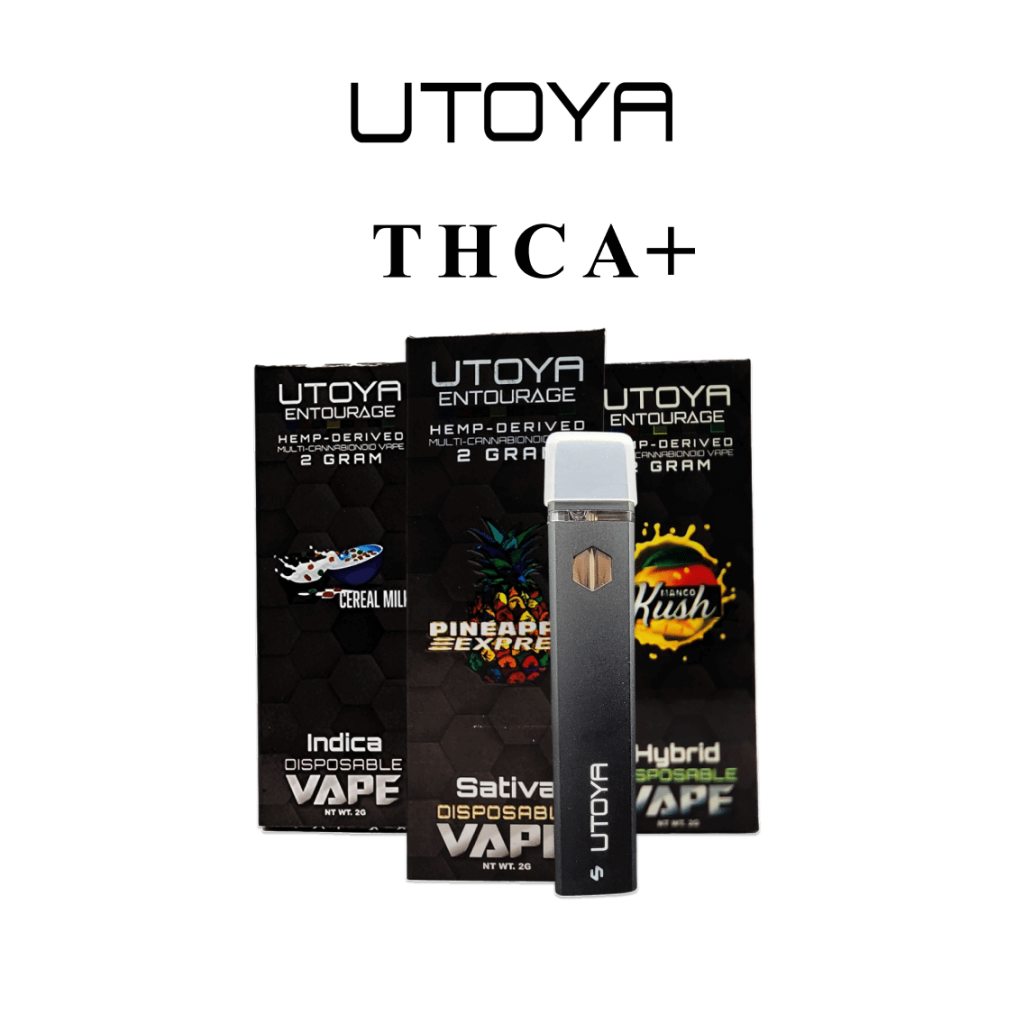Does THCA Get You As High As Delta 9?
Does THCA get you as high as Delta 9? Delta-9 products have long been the most popular cannabinoids. However, a new competitor is emerging. THCA, or tetrahydrocannabinolic acid, is a precursor to delta-9 THC. In its raw form, THCA is not psychoactive, allowing it to be legally available in higher concentrations in the United States.
THCA-based products are becoming popular among cannabis users because they can offer the same high as THC.
But how does THCA turn into THC? Are there differences between the high from THCA and delta-9? And is it true that these compounds are derived from hemp, making them less potent?
Let’s explore these questions and uncover the facts.
Understanding Hemp-Derived Delta 9
Delta-9-tetrahydrocannabinol (THC) is a well-known cannabinoid found in both marijuana and hemp plants. Delta-9 THC derived from hemp contains less THC than that sourced from marijuana, mainly due to legal regulations—more on that later.
THC is the cannabinoid most commonly linked to the psychoactive effects of cannabis, such as relaxation, giggles, and the munchies.
But how can hemp be used to produce delta-9? Hemp and marijuana are two different types of cannabis, distinguished by their THC content. Marijuana contains much more THC, while hemp has less than 0.3%.
Delta-9 from Hemp: How It's Made
Hemp might not have much THC, but it is packed with CBD. Some hemp strains are specifically bred to contain very little THC while maintaining high levels of cannabidiol (CBD). These strains must be grown in strict compliance with legal regulations.
What does CBD have to do with THC? Well, different cannabinoids have different effects!
Here’s an interesting fact: most cannabinoids, including the popular ones, are isomers. This means they have the same chemical formula but different arrangements of atoms in the molecule.
THC and CBD are examples of this. The unique arrangements of their elements result in different effects. Through a process called isomerization, chemists can rearrange the molecules to convert one compound into another.
And there you have it—you can get THC by modifying CBD. Who said science wasn’t cool?
Why is Delta-9 So Popular?
Delta-9 THC is popular because of its psychoactive effects, which often bring feelings of euphoria and relaxation. People use it for both therapeutic and recreational purposes, including:
- Pain relief
- Stress reduction
- Mood enhancement
However, because Delta-9 THC is psychoactive, some users may experience side effects like an increased heart rate or anxiety.
Delta 9: Strength & Potency
The strength and potency of hemp-derived Delta-9 THC can vary based on several factors, such as dosage, individual tolerance, consumption method, and product purity.
Delta-9 is generally more potent than products containing HHC, Delta-8, or Delta-10. Only products with THCP are stronger.
If you’ve ever consumed cannabis—whether smoked or eaten—you likely know what a Delta-9 high feels like. As a cannabis user, you probably also know that its potency depends on the method of use, concentration, and your own tolerance to THC.

Understanding THCA
THCA, or tetrahydrocannabinolic acid, is the most important precursor to THC. In its raw form, THCA is non-intoxicating and is abundant in live cannabis plants. The psychoactive effects of THC are only triggered when THCA undergoes a process called decarboxylation, which happens when it is exposed to heat through vaping or smoking.
Decarboxylation is a chemical process that removes a carbon atom from THCA, converting it from an acid into THC. After this process, the compound’s effects are the same as Delta-9 THC because it becomes the exact same compound.
THCA: Comparing Strength and Potenc
Raw THCA differs significantly in strength and potency from THC, its decarboxylated form. Because it is non-psychoactive, THCA does not cause the intoxicating effects associated with THC. Scientists continue to study its medicinal potential and how it might help with specific health conditions.
When THCA is converted through decarboxylation, it has the same potency as regular Delta-9 THC.
Comparison of Strength and Effects
There are no differences between decarboxylated THCA and Delta-9 THC. When THCA is heated, it converts to Delta-9 THC, and the two compounds have the same effects and strength.
However, raw, unheated THCA is different from Delta-9 in that it does not have psychoactive effects, but it can still offer potential benefits to the body.
Psychoactive Effects
- Delta-9 THC: This psychoactive compound is known for causing altered perceptions, euphoria, and relaxation. The strength of these effects often depends on the concentration of the product.
- THCA: When unheated, THCA is not psychoactive and does not produce a high. However, when exposed to heat (such as through vaping or smoking), THCA converts into THC and produces psychoactive effects.
Duration and Onset Time
- Delta-9 THC: The effects of Delta-9 THC are usually felt within minutes to an hour. They typically peak after about an hour and can last for several hours, depending on the dosage and individual tolerance.
- THCA: In its raw form, THCA has limited effects. When converted to Delta-9 THC through heating, the duration and onset time of its effects are the same as Delta-9 THC.
Safety and Health Considerations for Delta-9 THC and THCA
It is important to understand the safety and health implications of using Delta-9 THC and THCA derived from hemp, including potential risks and recommended usage.
Research indicates that Delta-9 THC can cause short-term side effects, such as dry mouth, increased heart rate, impaired cognitive function, or heightened anxiety. To minimize risks, it’s recommended to start with lower doses when consuming Delta-9 THC products. As with any cannabinoid, users should consult healthcare professionals and follow recommended dosages.
Scientific studies and medical opinions provide valuable insights into the use of cannabinoids. Although ongoing research continues to explore the therapeutic potential and safety profiles of Delta-9 THC and THCA, individual reactions can vary.
Before incorporating these cannabinoids into a wellness routine, users should consult with healthcare professionals and consider any personal health conditions.
Choosing Between Delta-9 THC and THCA
These user accounts illustrate the different effects of Delta-9 THC and THCA. Delta-9 THC is often chosen for its psychoactive properties, whether for medicinal or recreational use. In contrast, THCA is favored by those who value its non-intoxicating qualities and therapeutic benefits.
Ultimately, these testimonials underscore the importance of personal preferences and desired outcomes when selecting between these cannabinoids.
Delta 9 vs THCA - Frequently Asked Questions
The world of cannabinoids can be complex and sometimes confusing. To make informed decisions, it’s important to understand the differences between these compounds and their effects. Here, we answer some frequently asked questions about the differences, health effects, legal implications, and recommended practices for hemp-derived Delta-9 THC and THCA.
What are the main differences between Delta-9 THC derived from hemp and THCA?
Delta-9 THC derived from hemp is psychoactive, meaning it causes a “high.” THCA, on the other hand, is non-psychoactive and must undergo decarboxylation (heating) to convert into THC. Once decarboxylated, THCA becomes THC and produces psychoactive effects.
Is hemp-derived Delta-9 THC legal?
Hemp-derived Delta-9 THC is federally legal in the United States as long as it contains less than 0.3% THC. However, each state may have different regulations regarding its sale and use, so it is important to check local laws.
What are the differences between Delta-9 THC and THCA?
Delta-9 THC is known for its psychoactive effects, such as euphoria and relaxation. In contrast, THCA is non-intoxicating and is believed to have potential therapeutic benefits without causing a “high.”
Do these compounds pose any health risks?
Delta-9 THC can cause adverse effects, such as increased anxiety or paranoia, especially at high doses. THCA generally has fewer side effects, but some users may experience dry mouth or fatigue.
What is the recommended dosage and usage of Delta-9 THC?
Dosage recommendations for both compounds can vary widely. It is advisable to start with small doses and gradually increase them while monitoring your tolerance and response. Always read the specific dosage instructions on the product packaging before consuming any cannabinoid products.
Understanding Delta 9 THC and THCA
The differences between Delta-9 THC derived from hemp and THCA are evident in their properties and effects. Delta-9 THC is often discussed in relation to its psychoactive effects. Meanwhile, THCA, in its raw form, is non-psychoactive but can be converted into Delta-9 THC by heating.
When deciding between Delta-9 THC and THCA, consider your personal preferences, legal considerations, and potential health implications. Delta-9 THC is a good choice for those seeking a high, while those looking for potential therapeutic benefits without intoxication may prefer raw THCA.
Ultimately, the choice between Delta-9 THC and THCA depends on individual needs, health concerns, and desired outcomes. It’s important to keep in mind the differences in their effects, legal status, potency, and other characteristics.
Discover the Right Cannabinoid for You
At Utoya Organics, we understand that every individual’s needs and preferences are unique. Whether you’re seeking the euphoric effects of Delta-9 THC or the potential therapeutic benefits of THCA without the high, we have the perfect product for you.
Explore our range of high-quality, hemp-derived Delta-9 and THCA products to find the ideal fit for your lifestyle. Experience the difference with Utoya Organics today.
